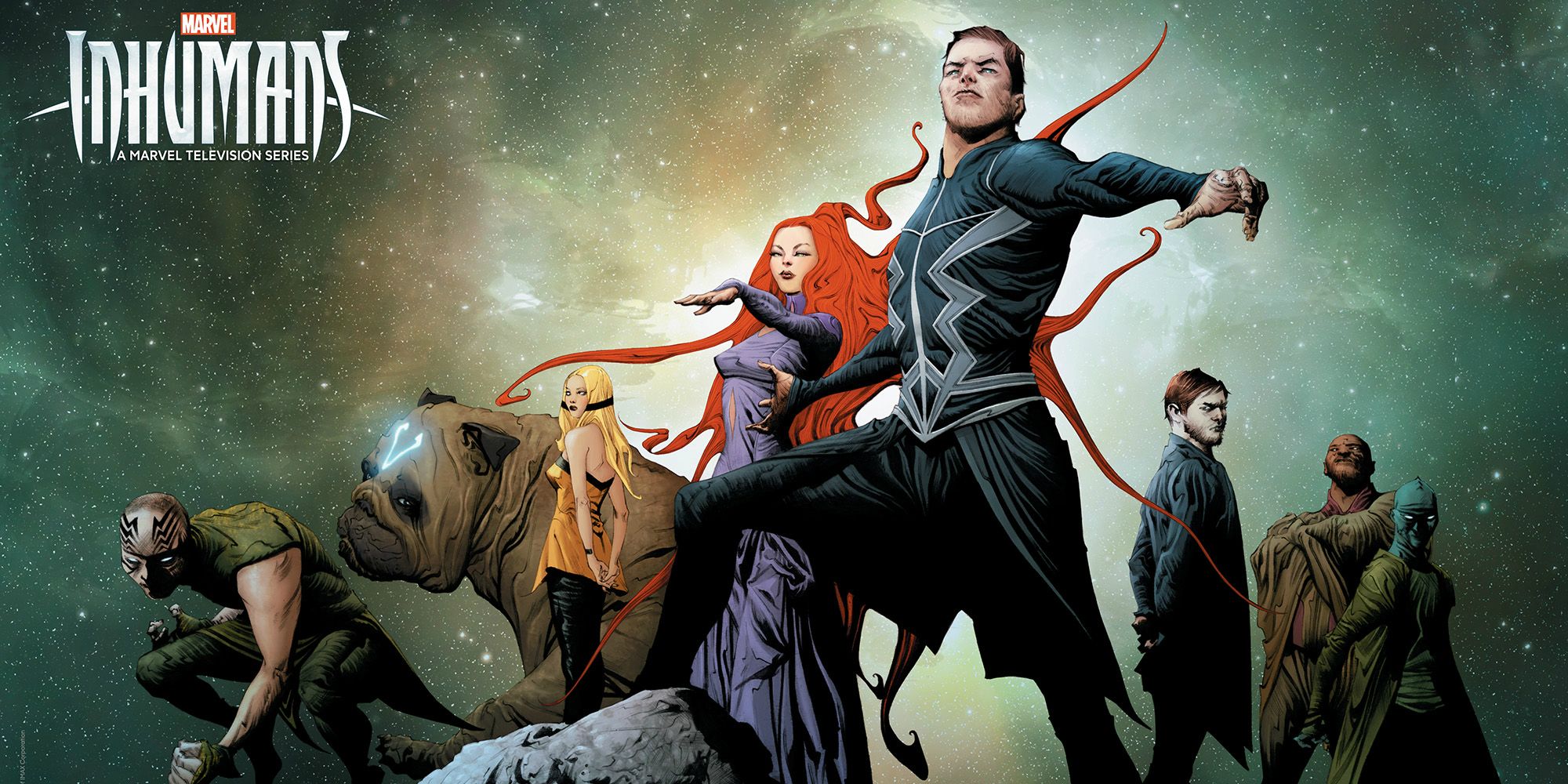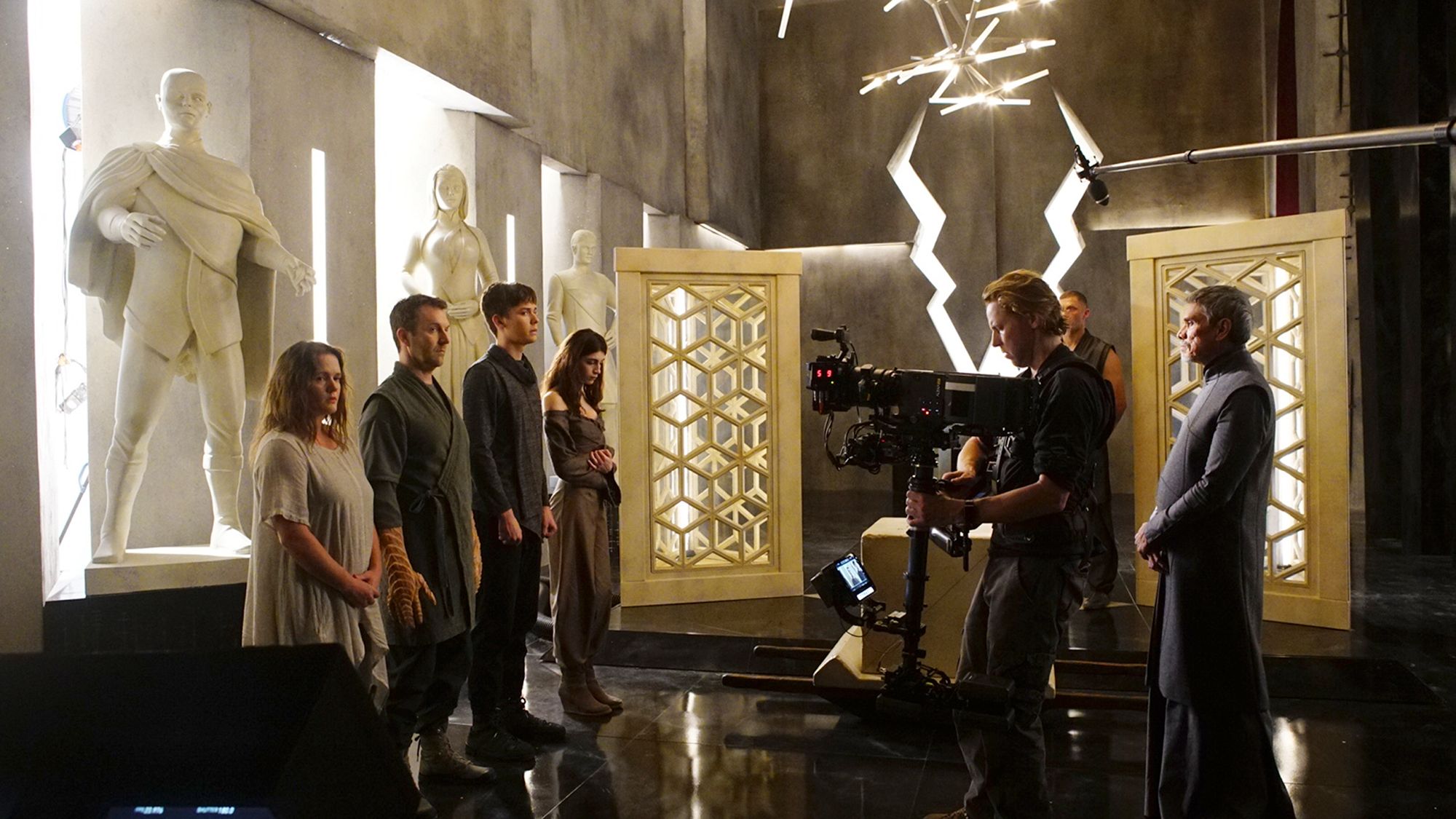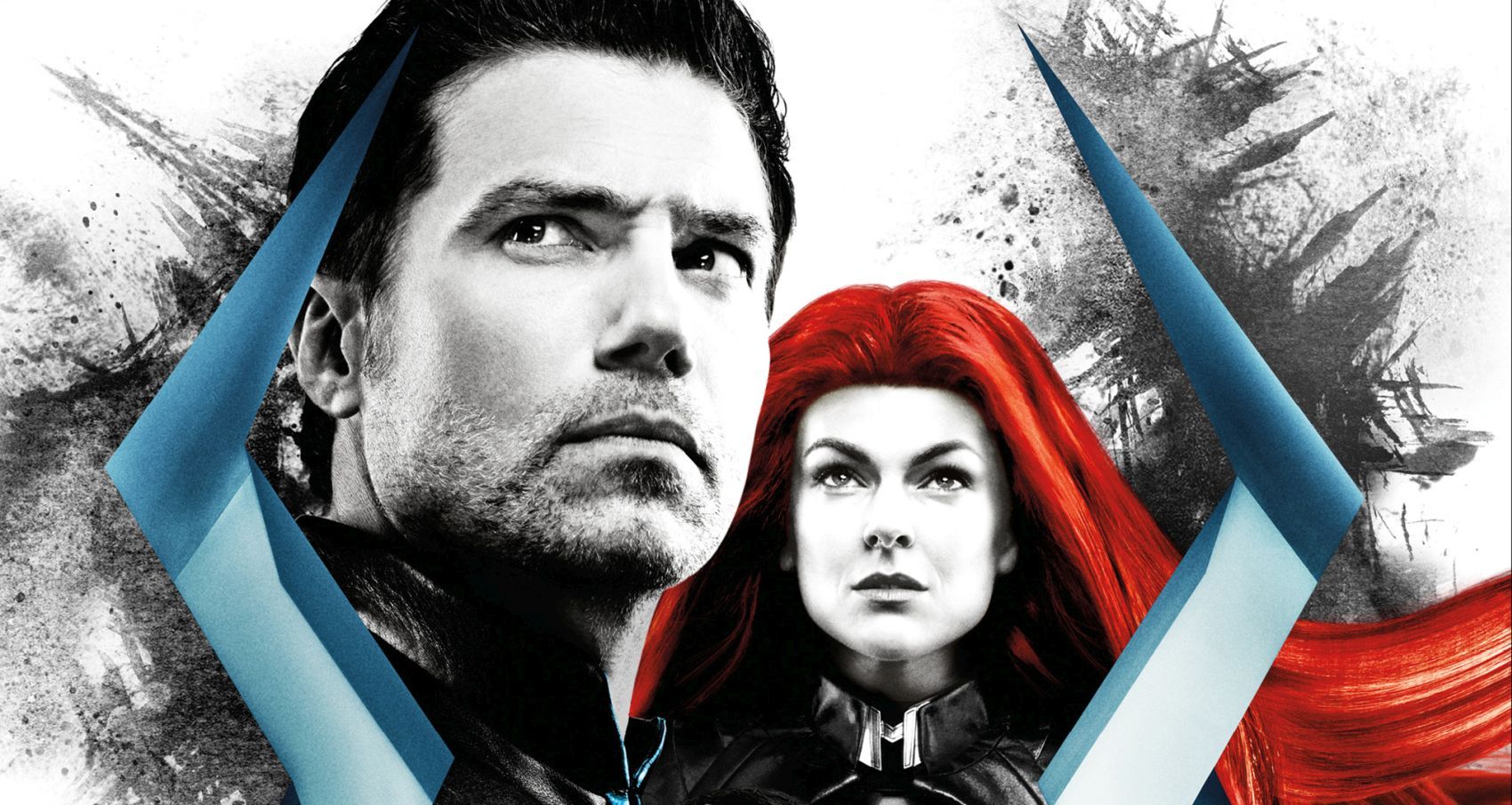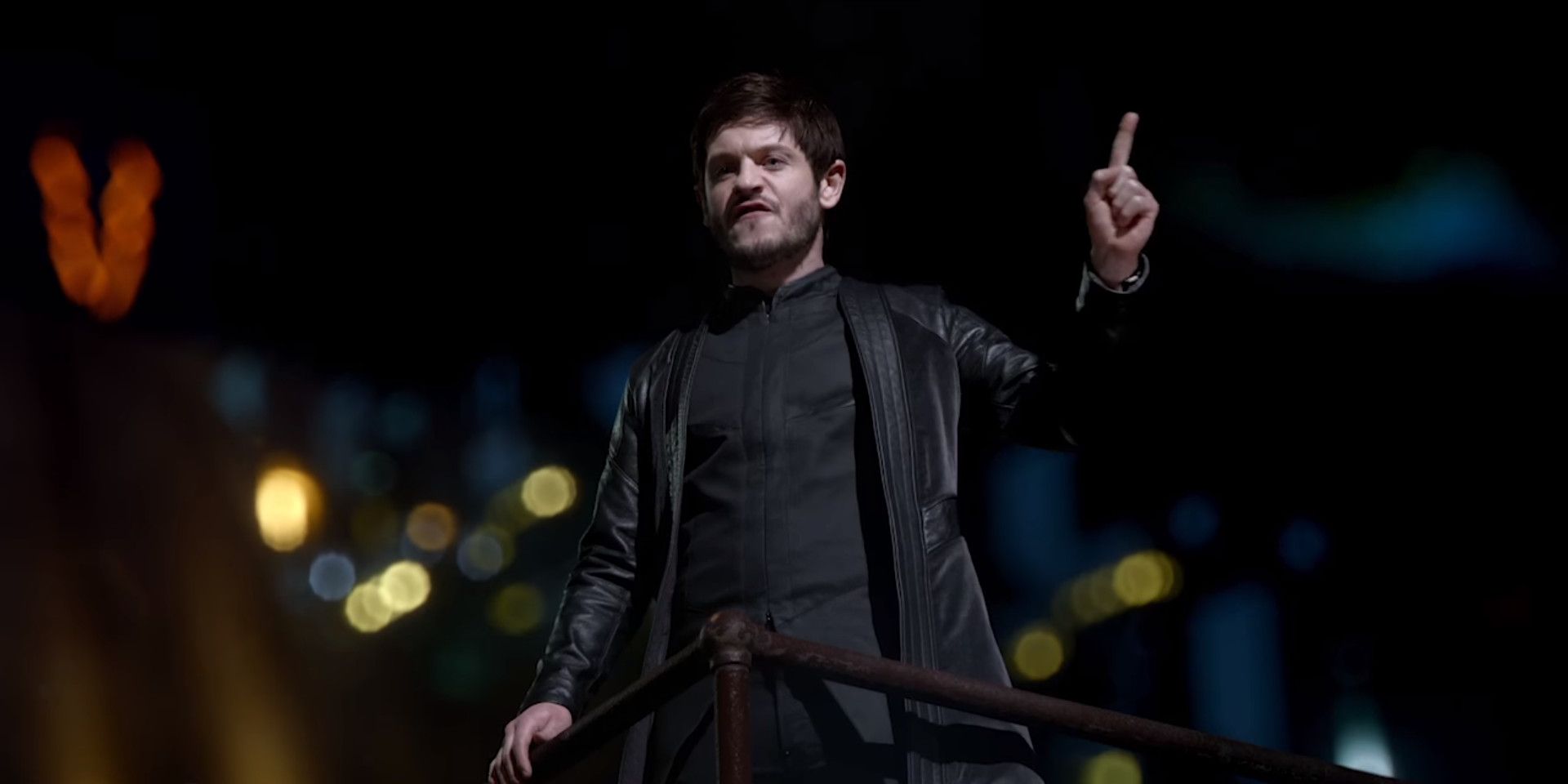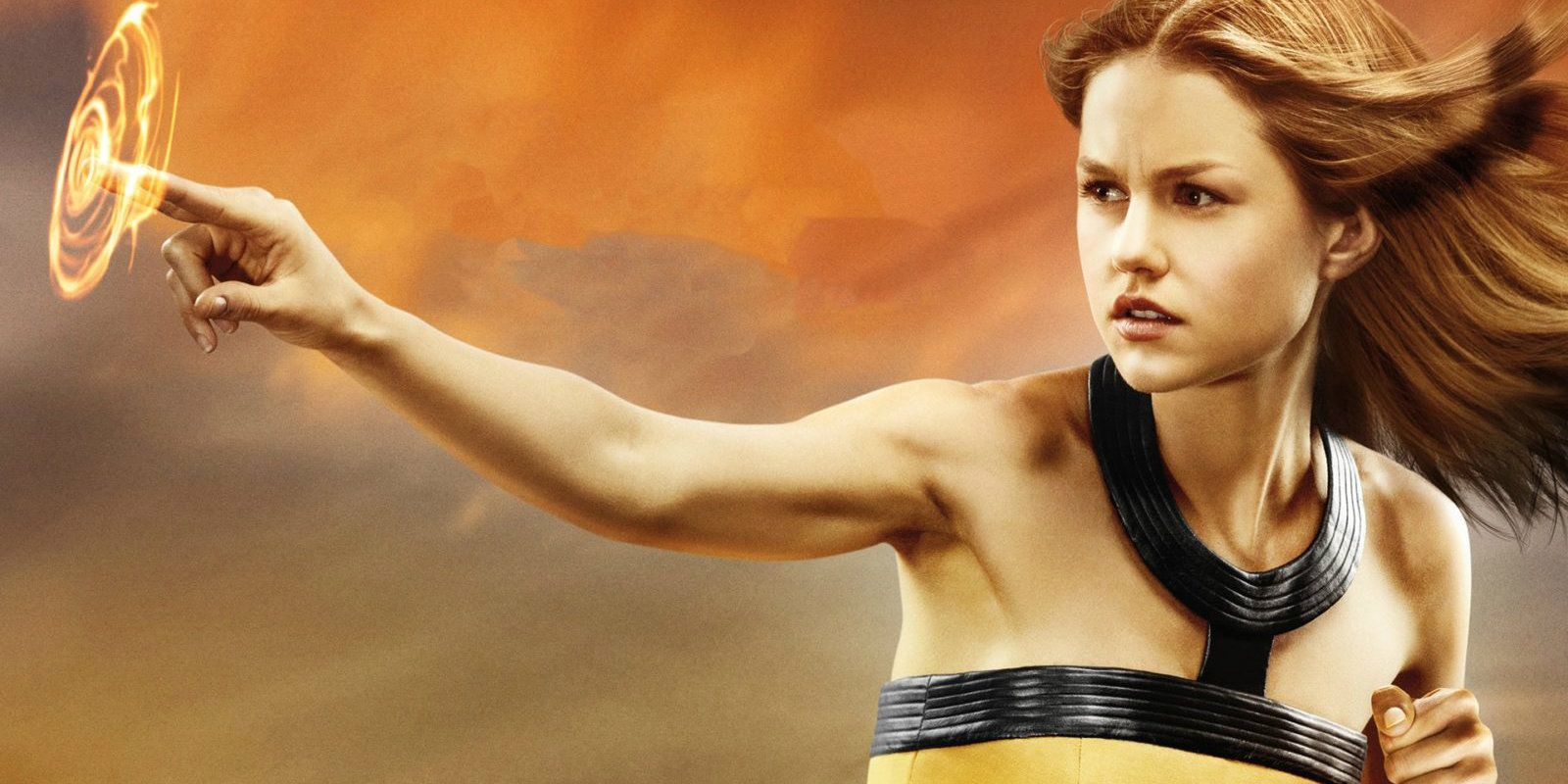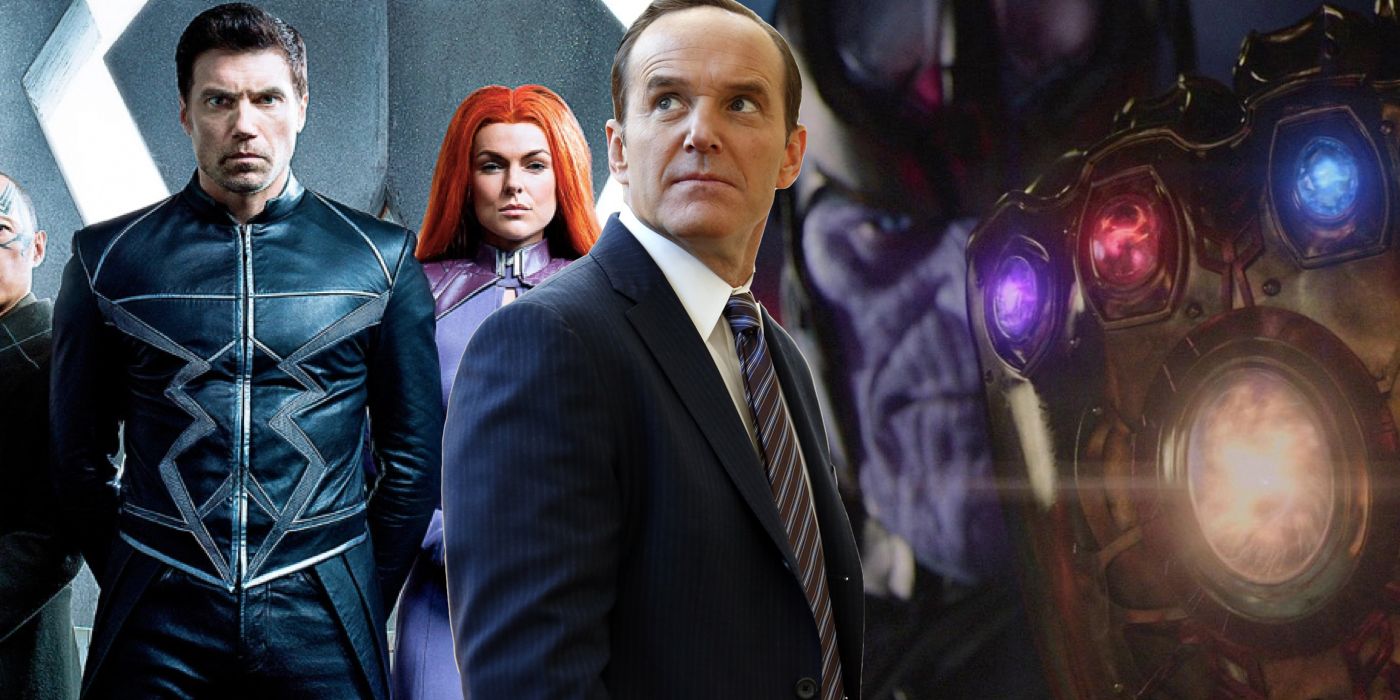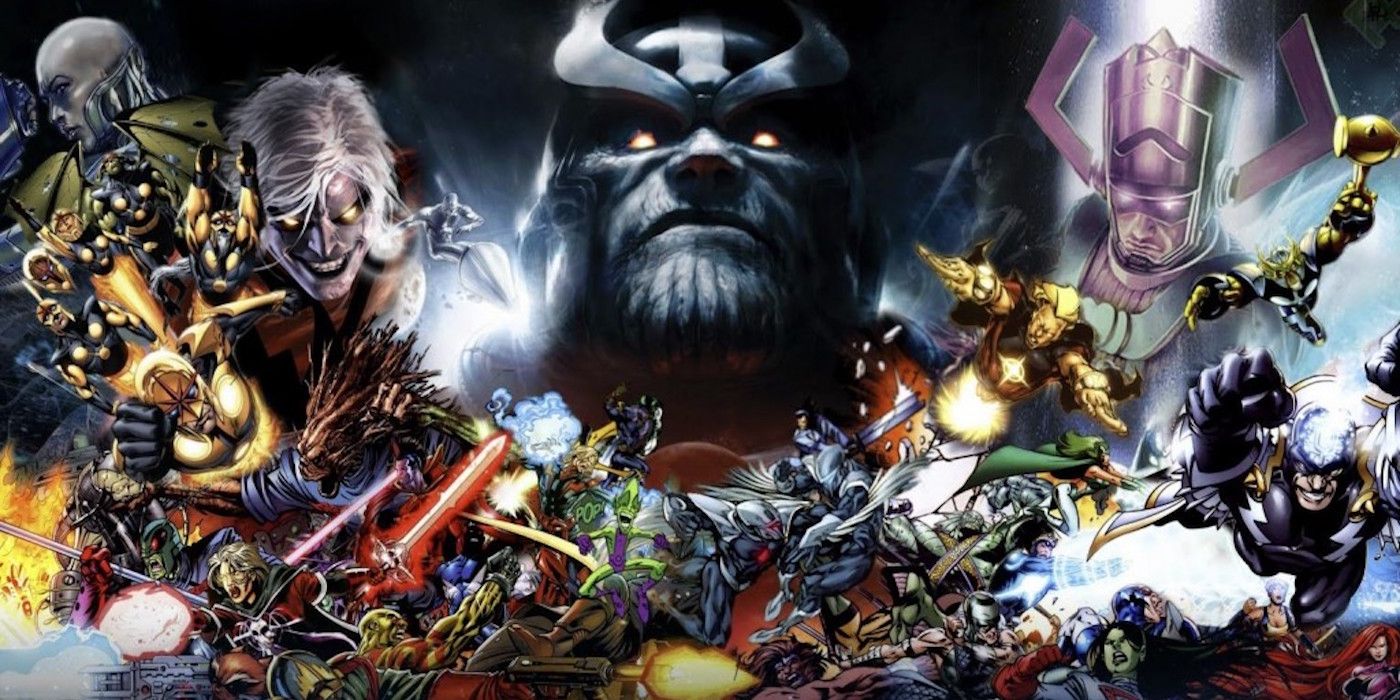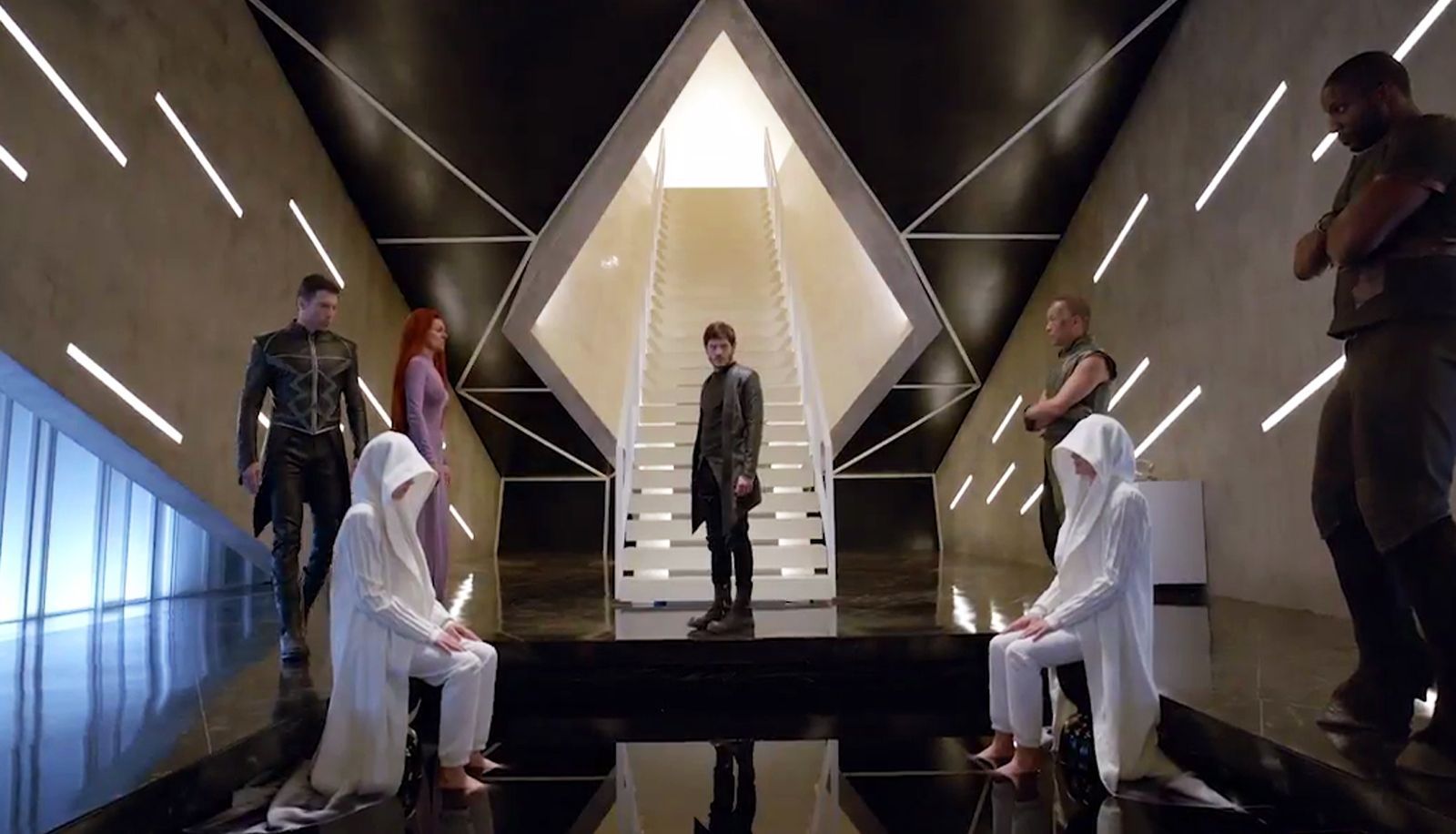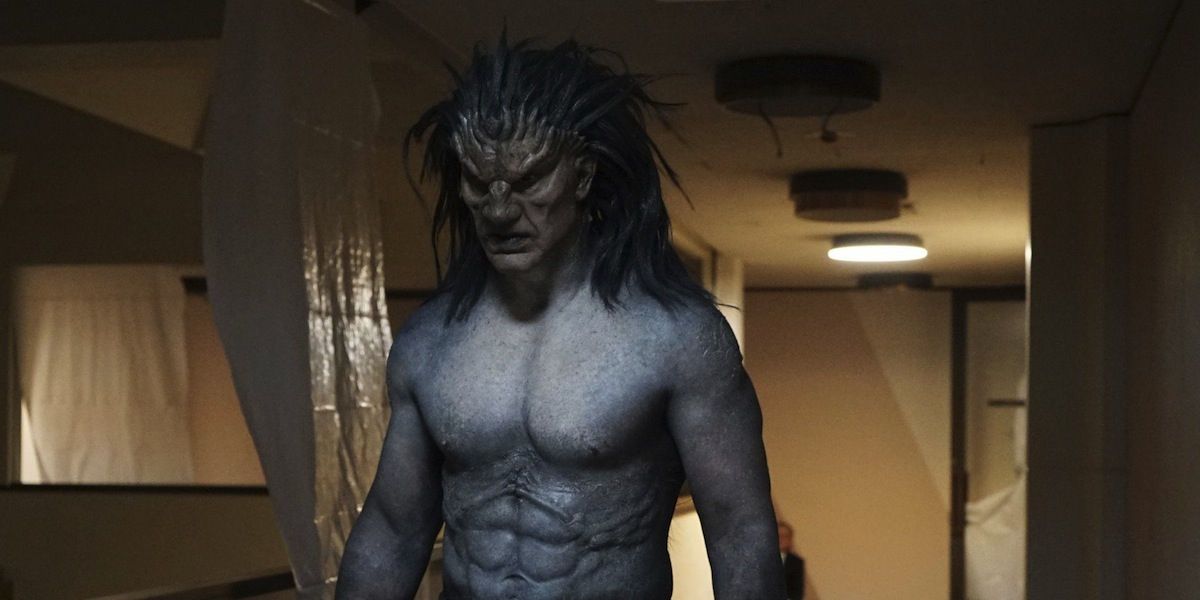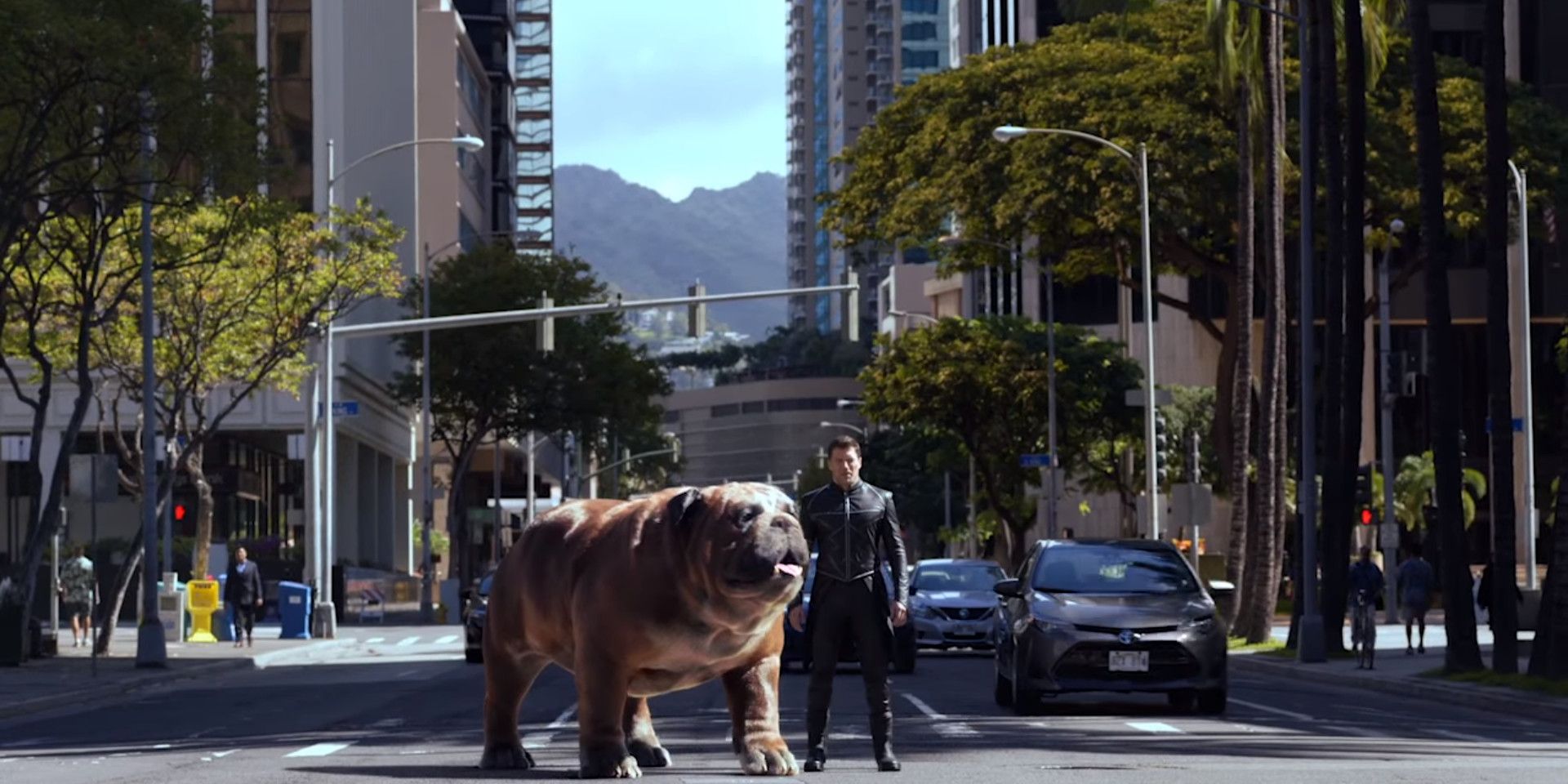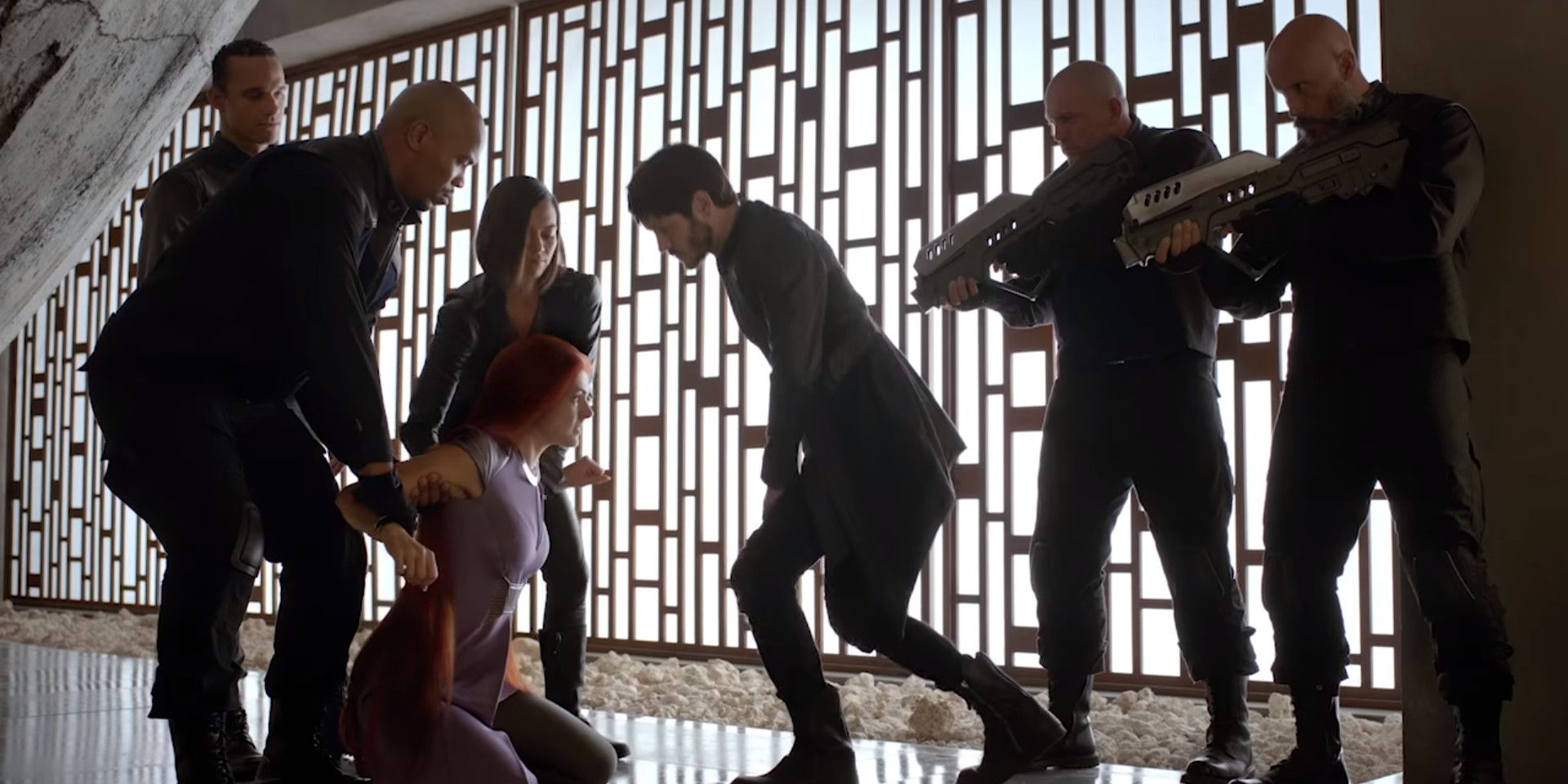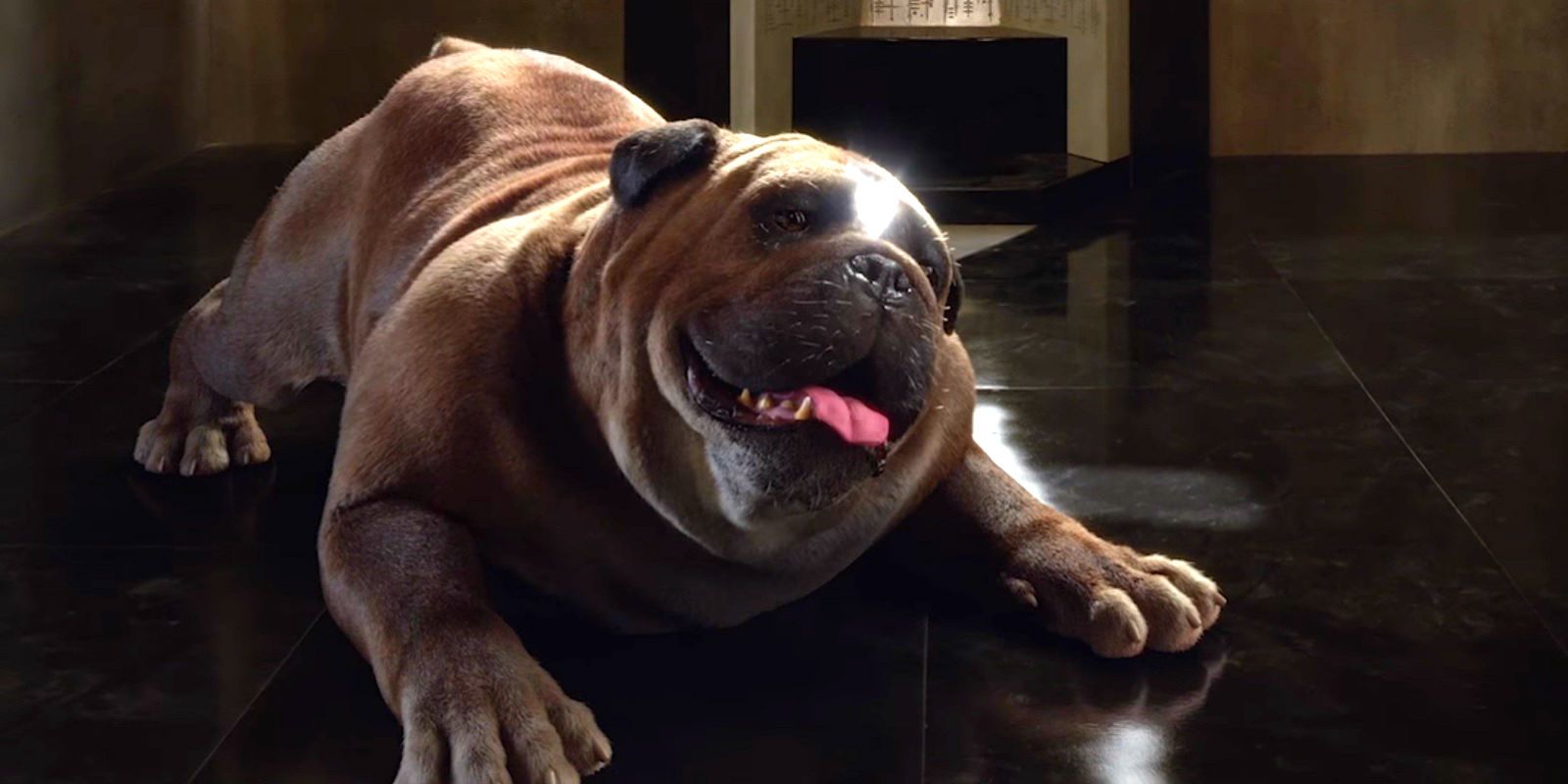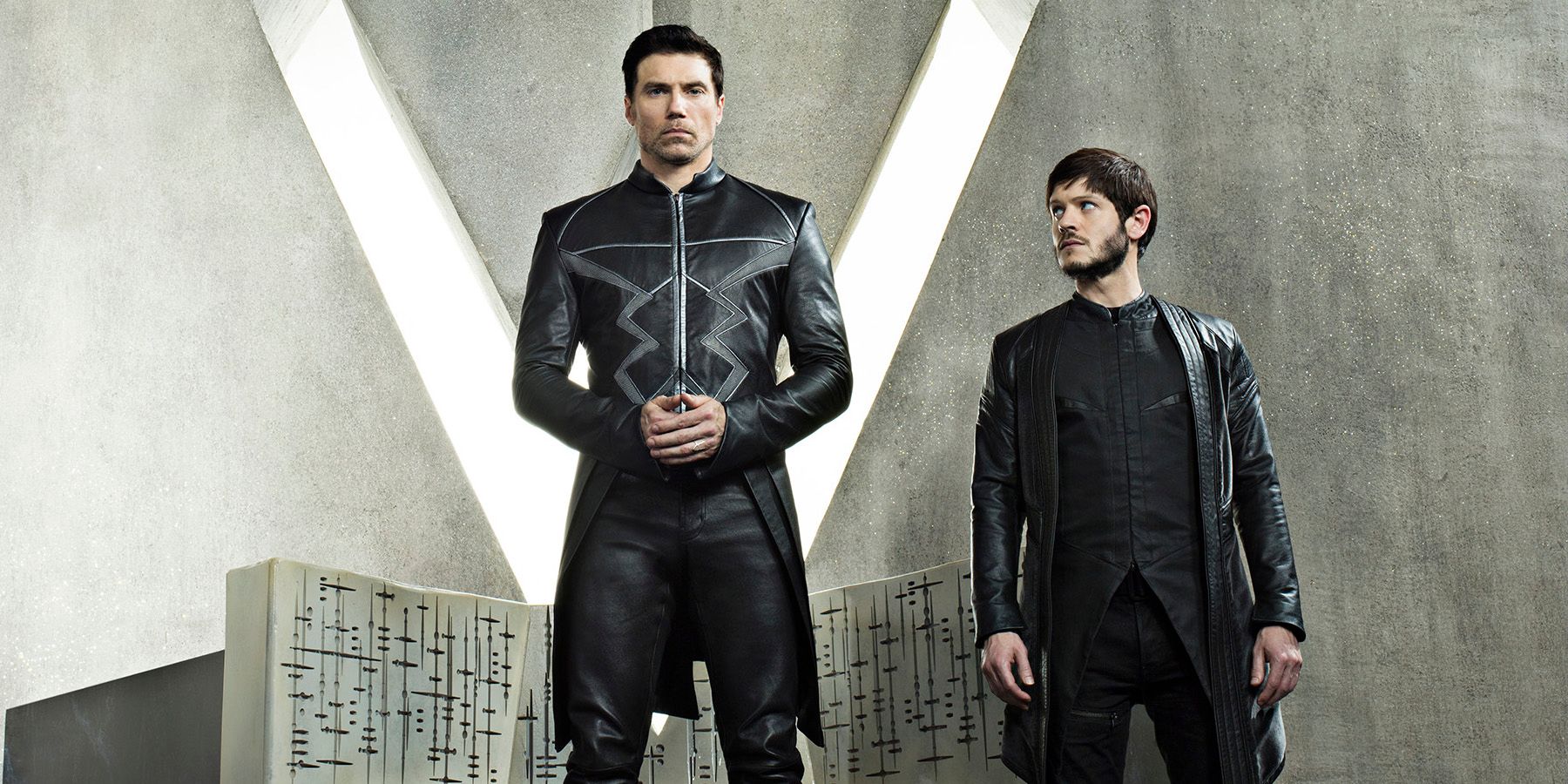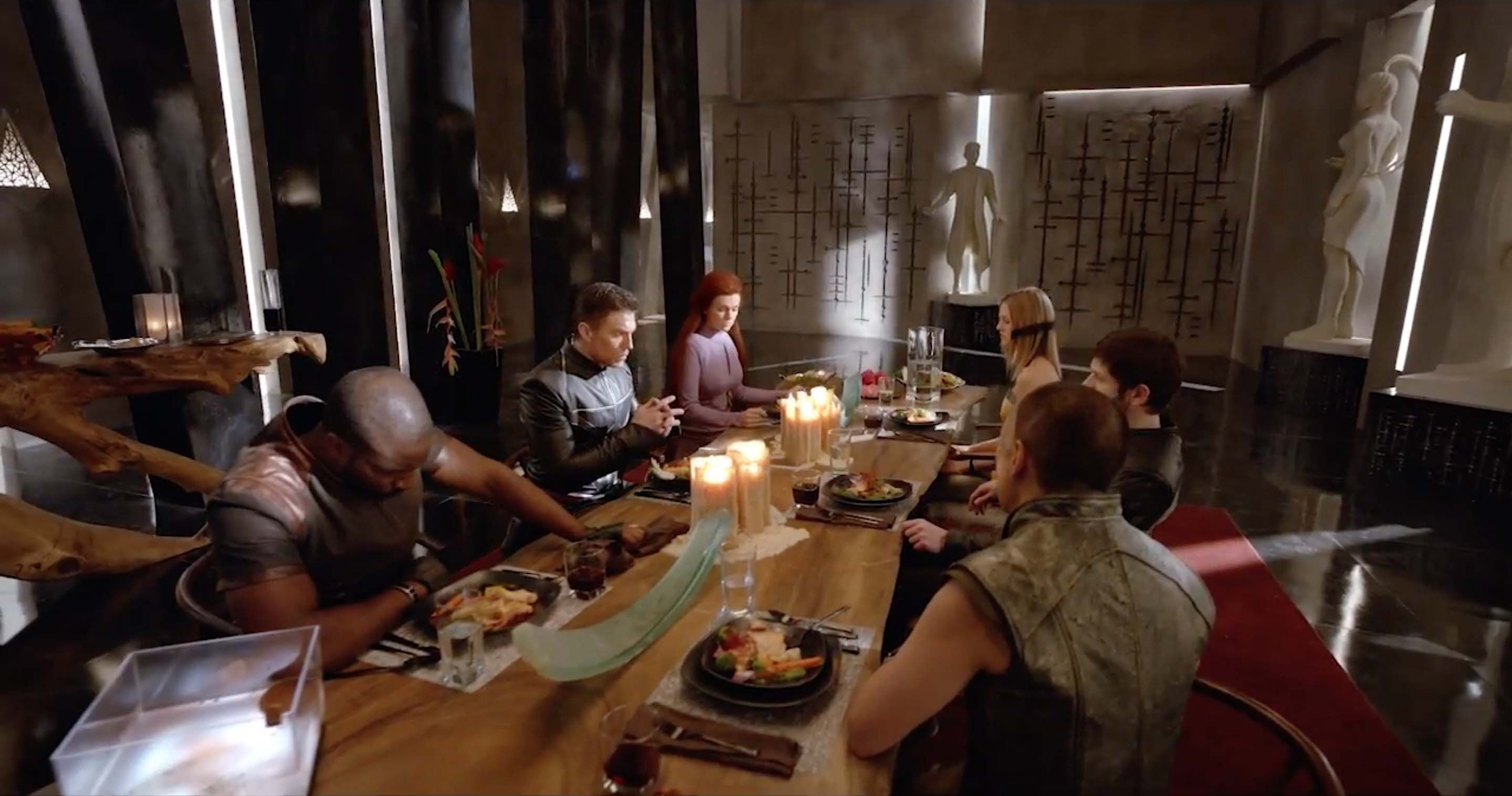These days, few entertainment entities better fit the definition of "so consistently successful it's starting to get old" than the Marvel Cinematic Universe, which started out getting rave reviews, positive fandom love and big mainstream box office and then... kept doing that for a nearly-uninterrupted decade. Sure, there have been missteps (the second Iron Man and Thor movies, Avengers: Age of Ultron under-performing the original in earnings and reviews) but nothing that's so far qualified as a five-alarm disaster - even the widely-panned Netflix series Iron Fist did solid viewer numbers and didn't seem to keep anyone from watching The Defenders. More than just good business, this kind of consistency serves to bolster Marvel/Disney's corporate mythology as the King of Continuity: "Of course, connecting all our movies and series together is a good idea - look how they all hold each other up!"But now there's Inhumans: A franchise already laboring under the stigma of having been "downgraded" from film to television series and a widely-held suspicion that no one in Marvel leadership actually wanted to make it save for mercurial top-shareholder Isaac Perlmutter's personal insistence. Fans have been sour on the project since the underwhelming first images were released, non-fans don't seem to know what to make of it, and the bold move of putting its two-part debut episode into IMAX theaters a month ahead of its official debut was met with negative reviews and audience indifference. The facade may have finally cracked - Inhumans could be the first out-and-out failure of the Marvel Cinematic Universe.Or maybe not. The Incredible Hulk was only a so-so moneymaker compared to Iron Man, but that didn't seem to matter when it was followed by the mega-success of Thor, Captain America and The Avengers. Agents of S.H.I.E.L.D. got a glum reception for much of its first season, but was energized by a long-lead twist (spinning off from the events of Captain America: The Winter Soldier) in its final third and is today heading into a fifth season. It's entirely possible that Inhumans has merely failed to put its best foot forward, and that the rest of the series will play out as a build to something much more satisfying - after all, betting against Marvel hasn't really paid off for anyone yet. If so, these are some of the things that will probably need to happen to pull it off:
TELL US WHAT'S GOING ON
The "IMAX Premiere" episodes of Inhumans do a mostly-solid job of setting up the basic idea: A civilization of genetically-different humanoids - originally of Earth but currently living in a hidden city on the moon - who manifest various superpowers and/or physical transformations (or don't, see below) when exposed to a special element during a coming-of-age ceremony. This civilization is embroiled in a political argument over whether to rescue newly-discovered members of their species on Earth or to invade the planet and take over, which ends with the Inhuman Royal Family zapped to Hawaii and running for their lives. It all makes enough sense for a 2017 genre series, especially if you're already acclimated to superheroes and their adjacent subgenres by this point.
What's missing, though, is connective tissue. Not necessarily to the other Marvel projects (see below) but the how's and why's behind the what's: Even if you choose to ignore the parts that were already introduced into the MCU mythos on Agents of S.H.I.E.L.D. (the Inhumans are descendants of early humans who were experimented on by Kree aliens during prehistory), there's quite a bit about the details of this scenario that could stand fleshing out for drama's sake. How long have they been on the moon? Why are the various Royals in the roles they are? Is there more to their relationships than the handful of traits they've been assigned thus far? Inhumans seems to be planning on revealing these details as the series goes on - but given the reception so far, the answers will have to be good ones.
TELL US WHY WE SHOULD CARE
Thus far, Inhumans apppears to be betting big on Marvel's most consistent secret weapon: Good casting. The main protagonists of the series are all fairly compelling, and we don't want bad things to happen to them because they feel like decent people. But that can only suffice for so long, and eventually the audience is going to need something slightly more substantive than "I'd rather Maximus not kill these six specific people and their giant dog" to hang their interest on.
Obviously the series is already building to this. Maximus seems to have a grand villainous scheme in mind, and the plot detail of his urgent need to keep the future-predicting teenage Inhuman onhand feels like a timed-distraction for a big twist i.e. the moves he's making based on vague flash-forwards turning out to have been misinterpreted. But whatever is actually going on, it's going to have to be meaningful to justify the risk in leaving the audience adrift by not revealing it upfront: Why is it so important (from Black Bolt's perspective) for The Inhumans to not return to Earth? Why does Maximus really want to leave Attilan so badly? What's his game in covertly commanding anti-Inhuman death squads on Earth?
MAKE MAXIMUS MORE OF A CHARACTER
Thus far, we know Maximus is angry because he's one of the unlucky Inhumans who got no powers from his Terrigenesis, blames his brother Black Bolt for the accidental death of their parents, and is especially upset that his childhood crush Medusa married his brother instead. We know he's the bad guy because his method of dealing with this is to stage a coup and try to murder the Royal Family. What we don't know is if there's anything else actually happening there under that particular cause/effect pathology.
Does Maximus actually care, as he says he does, about the plight of the unempowered Inhuman underclass? Is he just feigning at "working class" sympathies in order to curry political favor? (that, at least, would be politically topical in a way Marvel largely avoids outside of Netflix and Agents of S.H.I.E.L.D). He's enraged at the genetic-elitism of the powered Inhumans, but how does he feel about "normal" humans (which he effectively is) on Earth? There's room for complexity there, and Inhumans is going to have to take advantage of it if it's going to have a functional antagonist.
MAKE CRYSTAL MORE OF A CHARACTER
Princess Crystal (Medusa's younger sister and apparent main buddy of Lockjaw) gets the short shrift in the first two episodes of Inhumans - ironic, given that she was Marvel Comics fans' first introduction to the Inhumans when the characters first appeared in the pages of Fantastic Four. To a degree, that's understandable: This is a prime time series, clearly aiming more at grownup fans more likely to identify with middle aged couple Black Bolt and Medusa than with a teenager. But despite the lack of characterization, Crystal gets a lot of screen time and a (seemingly) key subplot of her own as the only Royal (apart from Lockjaw) whom Maximus manages to imprison before the others escape to Earth. If that's going to be a big part of the show, she'll need to become more of a character.
So far, we only have hints of where that's going via Maximus chiding her about her parents' hating the Royal Family and the fact that Medusa married into it. It seems pretty clear that the idea of the class divide between powered and non-powered Inhumans boiling over is going to figure prominent in the series, so it's likely that Crystal will be confronting - either literally or figuratively - the split within her own family as part of her storyline... but for now it remains only a hypothetical possibility for her character.
MORE CONNECTIONS TO AGENTS OF S.H.I.E.L.D.
Agents of S.H.I.E.L.D. played a 2 1/2 season long game of misdirection with the two central mysteries introduced in its first episode: How Agent Coulson came back from the dead, and the true identity of orphaned Agent Skye. As part of season 2's wide-ranging storyline, we got our answer: Coulson was zapped back to life by the blood of a Kree alien, the Inhumans (the Kree's creation) had been living in the shadows of the MCU all along, and Skye - real name Daisy Johnson - was one of them. At the time, Inhumans was still planned to be one of the mainline Marvel Studios movie projects, so that felt like a fairly big deal considering how infrequently the films directly reference the TV or Netflix sides of the Universe.
For whatever reason, Marvel was oddly coy about whether or not the reworked-for-TV Inhumans would actually connect to Agents in any meaningful way despite sharing a (seasonally-split) time slot on ABC. If nothing else the first episode would seem to put that to bed pretty quickly: Terrigen Crystals and the Inhumans' written language (previously called "The Words of Creation" before its true origin was revealed) both appear in the new series the same way they did on Agents of S.H.I.E.L.D., and the ongoing "crisis" of new Inhumans undergoing unplanned Terrigenesis on Earth that began on the veteran series is an inciting incident here. But S.H.I.E.L.D. itself has yet to make an appearance.
That's not in itself surprising, given that Agents of S.H.I.E.L.D's fourth season ended with the main heroes getting abducted by unknown forces and a cryptic teaser of ex-Director Coulson waking up in a cell with a window overlooking a deep-space asteroid field. However, a supporting cameo from one or two of Agents' well-liked, good-humored recurring cast members could help provide the familiarity, levity, and average person perspective Inhumans is thus far lacking.Even if that's not in the cards for season 1, it would certainly be interesting to know whether or not S.H.I.E.L.D.'s season 3 storyline - which saw the evil Inhuman "god" Hive (revealed to be the true founder of HYDRA in ancient times) return from exile to Earth - had anything to do with the grim happenings up on Attilan.
CONNECT TO THE REST OF THE MCU
For all the hype Marvel invests in the idea of its shared-Universe, for the most part MCU projects have been pretty good about not overdoing it on the kind of extraneous connectivity-for-connectivity's-sake (aka "continuity porn") that makes comics often so impenetrable for new fans. Marvel movies reference one another when it's the point of the story (Civil War) or affords a compelling guest spot (Hulk showing up for Thor: Ragnarok), and either freely contradict or ignore each other at will outside of "big deal" details like who and who isn't currently alive.
That said, if one of Inhumans' (so far) apparent flaws is the lack of a sense of scope - despite technically playing out simultaneously both on the Moon and in Hawaii - some bigger-world connections might go a long way to helping establish one. The greatest trick of the MCU experiment has been to get pop-culture so acclimated to the fact of its existence that audiences don't really need to watch every production to to get the sense of it. And while the Marvel movies seldom find time to note their small screen siblings, the Netflix and network offerings trade nods more frequently. One possible inroad: IGH, a drug/drug-company behind a madness-causing super-soldier steroid, figures prominently in the loose ends of the first season of Jessica Jones - where a popular fan theory holds that it might be an Inhuman-ized MCU incarnation of a similar plot element from the comics called "Mutant Growth Hormone" (which is exactly what it sounds like it is).
EXPLAIN HOW ATTILAN ACTUALLY WORKS
Here are a few things we don't know about Attilan that it feels like we should:
What exactly are The Inhumans doing on the moon? How often do they go back and forth, given that we've seen at least two instant-travel methods in the first two episodes? How much do they know about Earth given that Black Bolt acts like he's not seen cameras or guns before when they have versions of those in Attilan? Did they have the caste system all along, or did they invent that out of "necessity" when living on the moon turned out to be labor intensive? Are the palace servants part of the same underclass the mine workers, or are there social gradations between "dirt poor" and "friend and/or relative of Blackagar Boltagon? (no, really - that's his full name). Maximus says their resources will be strained by Black Bolt taking in Earth refugees but... what resources are those? They're on the moon!
If Maximus has contacts on Earth and we know there's at least one non-Lockjaw method of getting there and back, does that means he's been to Earth himself? Has he been behind and/or involved with any of the Inhuman difficulties Agents of S.H.I.E.L.D. has been grappling with? Humanity, by and large, doesn't seem to know they're there - but do The Asgardians? Do Doctor Strange and his cosmic pals know? Did Hive know? The leadership of "Old HYDRA" knew everything else about Inhumans, so did they know this? Have any of the multitude of aliens who (according to Guardians of The Galaxy) regularly visit Earth on the down-low ever happened upon a giant hidden city on its moon? Does Thanos know - because this seems like something he'd know.
Not only are all of these questions that would help flesh out the logic of the whole scenario, answering them could only serve to make things more interesting overall.
GIVE US MORE INTERESTING INHUMANS
So far, the characters with the most visually-interesting powers in the series are Lockjaw (who it appears might be too expensive to show too much of) and Medusa, and she loses hers (temporarily?) in Episode 1. The other characters seen so far aren't necessarily uninterestingly-powered as they are more (relatively) subtle: Black Bolt has a super-loud voice, Triton is a fish-man, Karnak can visuals complex predictive equations, Crystal throws around element-based science-magic, and Gorgon has super-stompy goat legs.
Okay, not bad. But considering Agents of S.H.I.E.L.D. - where Inhumans were only a recurring subplot - managed to showcase hulk-like brute Lash, porcupine-woman Raina, a guy who turned into a "ghost" and a woman who could clone herself it's hard not to feel like Inhumans is shortchanging its audience on more setpiece-friendly Inhumans. This is almost certainly an issue the series will look to solve in future episodes, since Maximus will probably need to send increasingly powerful henchmen to deal with the fugitive Royals and having said Royals encounter "ordinary" Earth Inhumans feels like the main reason to drop them in Hawaii in the first place. Speaking of which...
TAKE BETTER ADVANTAGE OF THE LOCATIONS
In case you hadn't heard, Marvel likes to save money where they can. That's (partly) why the present-set Captain America movies like to place some of their fantastical action setpieces in fairly mundane locations, that's why the Agents of S.H.I.E.L.D. keep encountering bad guys who prefer to work out of Los Angeles-area industrial parks, and it's almost definitely why Attilan mostly looks like a shopping mall that was designed to look "futuristic" in 1963. But apart from that, one thing you can't accuse Inhumans of is skimping on locations otherwise. The earthbound part of the story is taking place in Hawaii - one of the most beautiful places on Earth - and the exterior scenes were shot mostly on location.
That's good - but that doesn't mean it can't get better. There's a lot more to the Islands than the forests, beaches and picturesque city streets Inhumans has dropped its heroes into thus far. Hopefully, Inhumans will take every advantage of a colorful backdrop's ability to enhance the watchability of a given scene. If nothing else, it's refreshing to see at least one more superhero series that doesn't seem to take place entirely in a differently-lit incarnation of Toronto.
SPEND MORE MONEY ON PROPS (SERIOUSLY)
Budget and drama don't always have to be reliant on one another, but sometimes the wrong prop can really undercut a key moment - and Inhumans has a doozy of an example. Early on, to let us know that Maximus is in no uncertain terms the top bad guy, he opts to take Medusa off the table as a threat to his coup by cutting off her hair. Keep in mind that Medusa's hair is prehensile and using it to attack, defend and grab objects is her main Inhuman superpower, so this isn't just humiliation but outright mutilation - he's literally chopping off thousands of her "limbs." The idea of it is pretty damn horrific, and Serinda Swan acts the hell out of the moment with Inhumans' almost comically-outsized orchestral score backing her up. It's the sort of scene you write into a series to become one of its defining sequences...
...or, if you're Inhumans, you can just spoil the whole thing by having the villain whip out what looks like an ordinary electric barber's clipper to do the deed. It's hard to overstate just how silly this looks when both characters involved are in Attilan wearing their snazzy Inhumans costumes, and utterly baffling as to why anyone thought watching the bad guy go to work with a hairdresser's tool specifically designed to be less dangerous than scissors wouldn't yank the audience right out of how visceral the moment is meant to be. Hopefully, Inhumans isn't planning to build any further big scenes around hilariously innocuous "weapon" choices.
MORE LOCKJAW
This one seems like a lay-up. Even audiences who've turned up their noses at literally everything else going down in Inhumans seem to enjoy Lockjaw - probably because he's literally a gigantic puppy. Unfortunately, he seems to have been taken off the board (though not permanently) within the first two episodes, largely because his teleporting powers would solve essentially every problem the heroes have pretty quickly, but also likely because he's an expensive CGI special effect. Chances are he'll be back sooner than later to some degree, but if not Marvel will have thrown away an easy win. As established, audiences love big friendly animals, but the character also has a large youth following independent of the rest of the Inhumans thanks to a recurring presence in the Ms. Marvel comics.
ADDRESS THE ELEPHANT IN THE ROOM
One reason the Inhumans have taken longer than almost every other Silver Age Marvel mainstay to make it to the big screen: Their core premise bumps right up against the subject of eugenics and tends to come off kind of... "cool" with it. Marvel has never quite figured out how to explore these unpleasant implications while still making the Inhumans themselves the nominal good guys.
It is, no question, a bit of a lift. In the original comics (before their origin was retconned to name the Kree as having gotten the genetic ball rolling for their species,) the big "hook" of the Inhumans was that they'd cultivated an elite super-race of beneficial Terrigen-induced mutations through selective breeding (Black Bolt and Medusa are technically cousins in the comics, because even part-alien Royals are still Royals after all), rigidly enforced a caste system whereby the best-for-Inhuman-society use of ones powers determined ones role in Attilan and anyone whose genes made them still come out of Terrigenesis all monster-y ended up in a slave class, "The Alpha Primitives."
Granted, none of this is all that dissimilar from dozens of other lost-city/secret-altered-human/science-utopia premises that were popular in the pre-WWII pulp sci-fi from where so many Silver Age comics creators drew inspiration - but it still raises some pretty uncomfortable questions. To their credit, creators Jack Kirby and Stan Lee had the "normal" Marvel heroes who encountered all of this interrogating the premise to one degree or another from the start, but as the Inhumans got more popular in their own right such things became less explored and more "politely avoided."
The series seems to have made modernizing the premise itself a priority. The Alpha Primitives are gone in favor of depowered underclass, the caste system that feels more like a general unfair favoring of the "gifted" than a restricted-breeding initiative, and the underclass themselves are portrayed as sympathetic characters whose backing doesn't (so far) seem to be the "point of the spear" in Maximus' coup (whereas, in the comics, whipping up Alpha Primitive slave-rebellions is usually his go-to plan). Even still, it's a creepy status quo for the good guys to be (ostensibly) defending, especially since we don't really know why any of Attilan's social-structure is the way it is yet (see above.) From the looks of things, playing this out is Inhumans' big central gambit - how well it does at this will probably determine whether it succeeds or fails.

